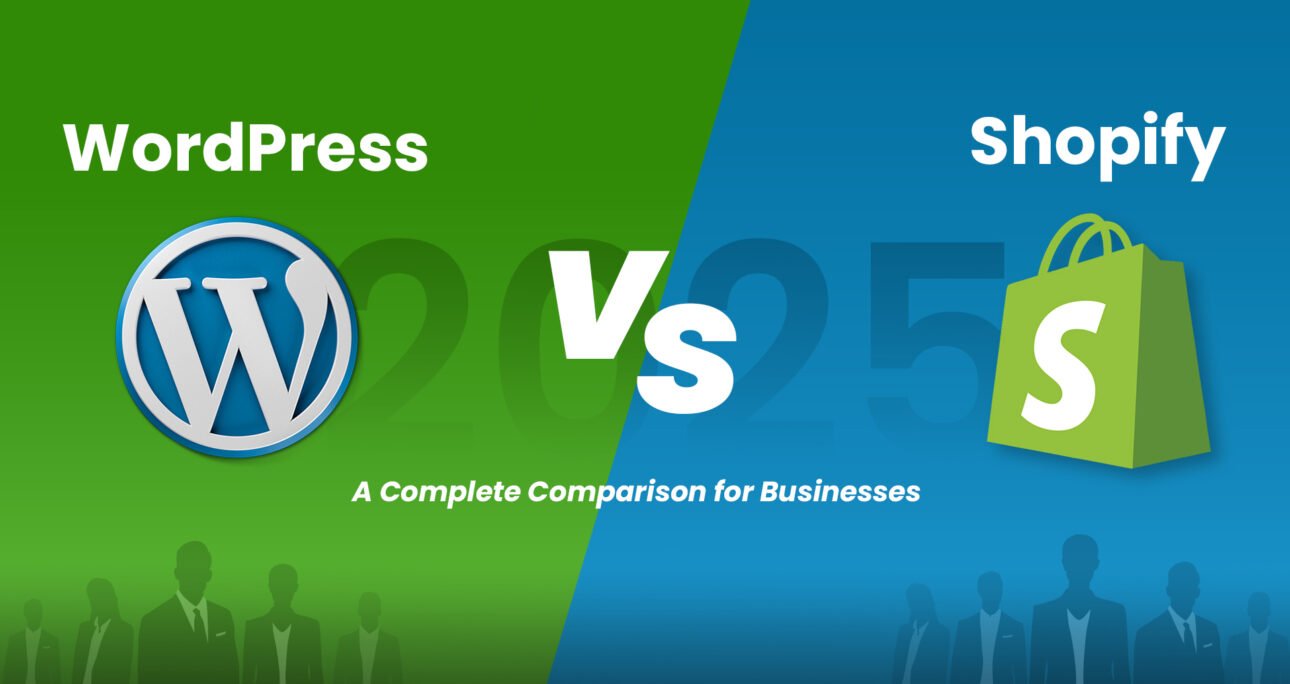Introduction
Choosing the right ecommerce platform in 2025 is more than a technical decision, it’s a business strategy. Both Shopify and WordPress Developement (with WooCommerce) dominate the market, but they cater to different needs.
Shopify is a fully hosted ecommerce platform designed for speed and simplicity, while WordPress is an open-source CMS that transforms into a powerful store with WooCommerce. The question is: which one aligns with your business goals?
This guide compares Shopify vs WordPress in 2025 across costs, SEO, usability, scalability, and security, giving you a clear path to make the right choice.
Shopify vs WordPress: Key Differences at a Glance
- Shopify → Subscription-based, fully hosted, quick setup, predictable pricing.
- WordPress (WooCommerce) → Open-source, self-hosted, customizable, requires more management but offers greater control.
1. Costs & Pricing
- Shopify: Offers tiered monthly plans that cover hosting, security, CDN, and core ecommerce features. The upfront cost is predictable, making budgeting easier.
- WordPress + WooCommerce: Free to start, but real costs include hosting, premium themes, plugins, and ongoing developer time. For larger stores, expenses may exceed Shopify.
Verdict: Shopify wins on cost predictability, WordPress on flexibility.
2. Ease of Use & Setup
- Shopify: Designed for non-technical users. You can launch a store in days. In 2025, AI-powered store builders make it even faster to set up and customize.
- WordPress: Requires hosting, theme setup, plugin installation, and ongoing maintenance. The learning curve is higher, but customization options are endless.
Verdict: Shopify is beginner-friendly, WordPress is better for those comfortable with technical setups.
3. SEO & Content Capabilities
- WordPress (WooCommerce): Known as the gold standard for SEO. With plugins like Yoast or Rank Math, you gain full control over URLs, schema, metadata, and content. Perfect for content-driven businesses relying on organic traffic.
- Shopify: Provides strong SEO basics and supports apps for optimization, but certain aspects (like URL structures) are less flexible.
Verdict: WordPress has the edge for advanced SEO and content marketing.
4. Scalability & Performance
- Shopify: Built for scale. With global hosting infrastructure, it handles large traffic spikes without technical intervention.
- WordPress: Can scale just as high with managed hosting and optimization, but it requires careful planning and additional cost for performance tuning.
Verdict: Shopify scales effortlessly, WordPress requires technical support to match it.
5. Integrations & Flexibility
- Shopify: Offers an extensive app marketplace for store enhancements and third-party integrations. However, app costs can stack up.
- WordPress: Tens of thousands of plugins plus full code access. You can build anything, but quality varies and plugin conflicts can occur.
Verdict: Shopify is structured and reliable, WordPress is limitless but requires careful management.
6. Security & Compliance
- Shopify: Handles PCI compliance, SSL, and overall platform security, reducing merchant responsibility.
- WordPress: Requires regular updates, backups, and security monitoring. Merchants are responsible for compliance.
Verdict: Shopify minimizes security risk, WordPress requires active management.
Final Verdict: Shopify or WordPress in 2025?
There’s no one-size-fits-all answer:
- Go with Shopify if you want speed, simplicity, and managed infrastructure. It’s ideal for businesses focused on sales and growth without worrying about the backend.
- Go with WordPress + WooCommerce if content marketing, SEO, and full customization are critical to your success. It’s a better choice for businesses willing to invest in flexibility and long-term scalability.
Conclusion
Both Shopify and WordPress continue to dominate the ecommerce landscape in 2025. The right choice depends on your priorities: simplicity vs. flexibility, predictability vs. control.
Before you decide, map out your business goals, budget, and technical capacity. The best platform isn’t the most popular, it’s the one that empowers your business to scale.




